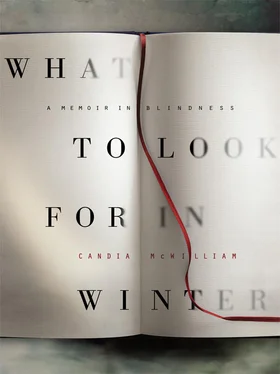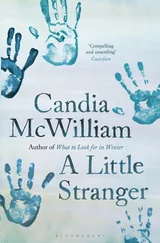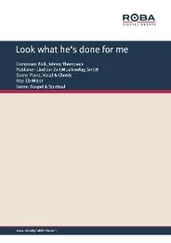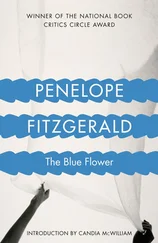I’d been going to fly, but a terrorist incident had grounded all planes and put the nation on its guard against, among other things, carriers of lipstick, scent or fountain pens. Guilty on all counts, I packed my longish frame and a 900-page novel into the vestibule, as the greased-up hinge between carriages of a passenger train is fabulously designated, of a southbound train, and settled to some hours’ standing room only.
I minded even more than usual being photographed, as we all were, for the long list press meeting. It wasn’t — only — vanity, it was an acute sense that I couldn’t open my eyes. But when making a point or really engaging with the other judges, I could momentarily see into their faces. I realised that this peeled state of being was mind-altering and, while quite useful for an indentured servant of fiction, and a state desirable if it might be useful to the artist in one, not much good in a mother or a friend.
I returned to the North, relieved to be leaving the Quaker club where I had been staying in a bed off whose end I hung. In the night I had met polite dressing-gowned ghosts of either sex in the corridors, between fire doors, up in Town for a play or to clock the City churches. In each room at the club is a list of local things worth visiting which reads like a list of my great-aunts’ enthusiasms, those penurious educated lonely accomplished women. I could feel the fulcrum tipping as I passed into my own past and with some relief felt young no more.
In Edinburgh, as always happens, I took a lease of life and shared it with my younger son. We had a happy few days listening to authors, a really peculiar thing to enjoy doing, but we do. I continued to see jokes and architectural detail, two things that keep me going, though only as it were in stroboscopic clatters of vision.
My son returned to school and autumn was upon us.
Opposite me in Oxford lived two neurologists. The wife was slight, pretty, part-Chinese. By now, if I did have friends to visit, I was experimenting with wearing a green hat indoors to see whether this soothed my sight. I had accommodated to the difficulty of combining walking with seeing by capping the reclusion I had been working on for a decade with completely hermetic habits. I had stopped attending all meetings, including AA, save those for the Man Booker Prize for Fiction 2006.
I visited the GP once more and met a new doctor, young, surrounded by books; on his wall — I saw! — was my favourite New Yorker cartoon, showing a snail in love with a Sellotape dispenser. I told him what had happened, that my world had narrowed quite and that I found it difficult to open my eyes.
He used a word that made complete sense, a direct lift from the Greek. It was very rare, he said, but it did exist. The word was blepharospasm. Blepharon comes up a lot in Homer, and is the Greek for eyelid. Spasm was it.
I was relieved that I had not been making all this up.
My neighbour the pretty part-Chinese neurologist knocked at my door one dusk in September. I wasn’t actually wearing my green hat, as I had been alone. Nor was I wearing sunglasses. I could manage by, as I had come to think of it, ‘striving’ with my neck and chin, to focus a bit and gather from her outline who she might be, and I could smell that she had quinces about her person.
‘Can you not see me?’ she asked.
‘No, not really very well.’
‘I’ve got some quinces from our tree,’ she said, ‘and you have blepharospasm.’
And so I do. My eyes are fine, my vision acute, but my eyelids will not open.
In order to gain sight, I grimace, stretch, peer and above all hold taut and high my already rather camel-like head with the result that I look, if I do go out, like the caricature of a snob. Mainly I take steps so as not to emerge from my tall thin house whose many and irregular stairs fill me with a reinforcement of the dread of falling to my death downstairs that I have had all my life; my parents’ house in Edinburgh had sustained such a death down its stone stairs, I had always gathered self-propelled; that was part of the reason they could afford it, I think.
I now have the elastic-braced white stick with which I hope to dispel the impression of a monstrous dowager with Tourettian facial tics and the creep-and-lurch gait of a not sufficiently surreptitious drunk. Also, of course, I don’t want to embarrass people, or to oblige them to ask if it is getting better. It doesn’t.
In some cases it can be alleviated by the injection of botulinum toxin, which hauls me up for my ugly pride in declaring that I’d never have facial ‘work’, as puritanical fans of plastic surgery call it. I clamoured for the injections now. In Scotland we call them jags and I had four jags in each eye, always praying while the needle goes in that I am somehow buying off Fate for my children and those I love, a dangerous deal and foolish, the worse and worst always offering themselves to the inward eye of a parent.
And as my eyes have closed, so I have learned perforce a number of things, some of which may even be passed on or rendered down, as those quinces were, into something useful or reminiscent or nourishing or maybe merely scented with something that reminds you of something else. It was as if my deep brain was telling me that I, with my lucky and unlucky life, have seen enough and that I really am for the dark. I must catch the light and offer it around, like those quinces and that insight from my generous diagnostic neighbour.
And of course it is not telling you a secret if I confess that I am blindly hoping by hunting down the light, the past, those lost places and people, to lift at any rate some of the stone that has rolled across the mouth of my cave.
My youngest child asked me, ‘It is a vulgar question, but, may I ask, do any of your other senses compensate yet?’
One of my sisters who are not my sisters declared, and it comforted me about her decided unchangeability, ‘Well, we always said we’d rather go blind than deaf.’
How dared we?
How lazily I have assured dying friends that they look well, how idly nodded when people mentioned the unerring ear of the blind piano tuner. Now is the time for me at any rate to pay attention and look hard, close, even if only upon what has been.
This might be as good a point as any to say that none of the treatments described in this book was covered by private health insurance. I did not have it.
Books have been throughout my life very much more than mere consolation and escape, but I cannot deny that they have, and the act of reading itself has, been that too. I now read with a certain amount of difficulty, and can do about a paragraph at a time. Reading in bed is not the bower it was. I cannot at the same time both lie and read, as I have, in the prone not mendacious usage, done lifelong. Reading is tiring which it has never before been. I have all my life eaten books, walked and run and done all I cannot actually in person do among, within and around books, and now am trudging and lagging. Nothing however that insists upon concentration, as this limitation does, is all bad. Memory grows less swooning, more muscular, recall more instructable, like a messenger, and as potent and alarming.
Most things had I thought gone wrong in my life by 2006, but there was always reading. Well, is there? Not in the old sense, the wandering, greedy sense, no. But, even if, in the worst case, I am left no longer able to read, reading will of course remain within me. I used to think, when I was five or six, at night in my nursery, that I would certainly die for books, for Greek and Latin, for words (of course I didn’t think of it then as freedom of speech); I know I would surely give up my own sight of them for these things’ sake.
Читать дальше











